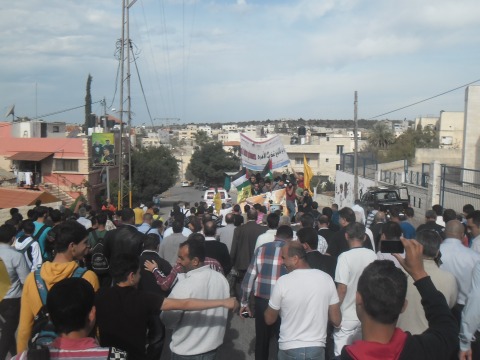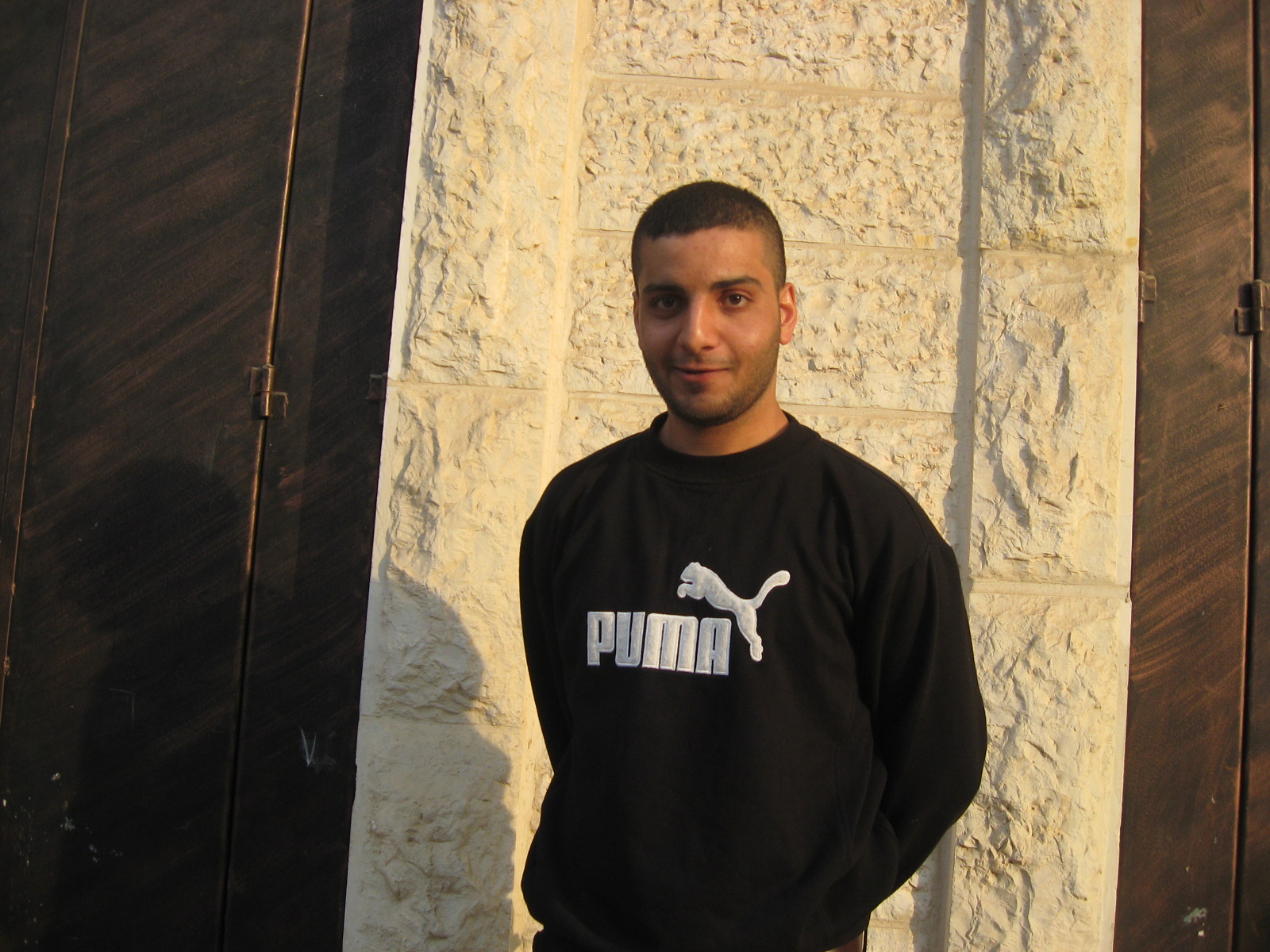Year: 2013
-
An unrelenting assault on the village of Deir Istiya’s farmland
28th November 2013 | International Solidarity Movement, Nablus Team | Deir Istiya, Occupied Palestine The village of Deir Istiya has encountered severe disruption to its agriculture and water supply since 1990 from the Israeli authorities and nearby illegal settlements. This has culminated in the Israeli army’s planned action to uproot nearly 2500 olive trees in the…
-
Demonstration against Israeli forces as invasions and arrests increase in Azzoun
28th November 2013 | International Solidarity Movement, Nablus Team | Azzoun, Occupied Palestine Yesterday afternoon in Azzoun village, there was a demonstration attended by more than 250 people. This protest was against the Israeli forces’ continuing night invasions, arrests, and their treatment of Palestinian prisoners. The demonstration began in the center of Azzoun at noon, hundreds of…
-
Interview with Saeed Amireh: “The occupation affects our life in so many ways, economically and socially.”
28th November 2013 | International Solidarity Movement | Ni’lin Can you tell us a bit of the history of Ni’lin? In the past, Ni’lin used to be part of the area which is within the ‘48 borders now. In 1994, when the Palestinian Authority came, Ni’lin became part of Ramallah city. So now Ni’lin is…



